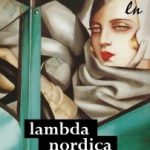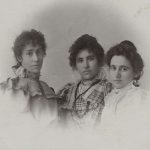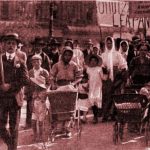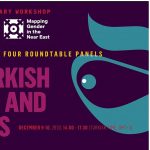 Second Meeting of the International Standing Working Group on Medialization and Empowerment (Web); by German Historical Institute London
Second Meeting of the International Standing Working Group on Medialization and Empowerment (Web); by German Historical Institute London
Time: 10.-12.12.2020
Venue: virtual space, via London
Programme (PDF)
How have feminist stories been recorded historically? Where can we find them in the archive? And how does this shape historical scholarship on women’s empowerment?
Since the 1960s, feminist historians have sought to re-write women into history, recovering their voices and restoring them within a discipline that continues to prioritize the actions of men. As Karen Offen has highlighted, the history of feminism is political history: it is “a more expansive history of politics that incorporates women and analyzes gender politics” (2011). And yet, the task of recovering women’s voices and feminist activism is complicated by normative forces that shape our access to women’s histories. Typical sites of historical research – the mass media and the archive – are built upon and reflect systems of imperial and patriarchal power. By collecting, cataloguing, and structuring knowledge, both the archive and the media have pacified and obscured women’s political engagement.
At the same time, the emergence of grassroot feminist media and archives may offer the possibility of challenging this relationship. To what extent can feminist historians question normative forces when they rely on archival and media sources? Do alternative archives and media really allow historians access to different stories? Or do these counterpublic spaces also conform to the conditions and norms imposed by the mass media and the archive? And how have changes in the media and archiving over time shaped historical work? Read more … (Web)
Conveners: Christina von Hodenberg and Jane Freeland (German Historical Institute London)
Partners: Max Weber Foundation India Branch Office, German Historical Institute Washington, German Historical Institute Rome and Orient Institute Beirut
Monthly Archives: Dezember 2020
Konferenz: Mythos & Postmoderne – Mytostransformation und mythische Frauen in zeitgenössischen Texten, 25.-26.02.2021, virtueller Raum
 Ruhr-Universität Bochum (Web)
Ruhr-Universität Bochum (Web)
Zeit: 25.-26.02.2021
Ort: Virtueller Raum, via Ruhr-Universität Bochum
Programm
Thursday, 25 February 2021
- 13.00 Uhr: Barbara Bollig, Prof. Dr. Sebastian Susteck | Welcome; Barbara Bollig (Bochum) | Introduction “Myth and Postmodernism”
- 13.30 Uhr | Keynote (Chair: Barbara Bollig): Andrea Geier (Trier) | Weiblichkeit(en) als Mythosmaterial. Medea und Kassandra
14.30 Uhr | Tea & Coffee Break
14.45 Uhr | Panel 1, Chair: Joachim Trinkwitz
- Felix Denschlag (Hamburg) | Mythen des ‚kollektiven Gedächtnisses‘ – Aleida Assmann über die narrative Wahrheit der Kulturwissenschaften
- Felix Oberholzer (Basel) | Pierre Bourdieus Faszination für Virginia Woolf: Gesellschaftskritische Überlegungen zu Mythen und krisenhaften Männlichkeiten
- Fabiola Valeri (München) | Zur Poetologie des postmodernen Mythos – Die Hexe von Endor in Botho Strauß’ Saul (2019)
16.15 Uhr | Tea & Coffee Break
16.30 Uhr | Panel 2, Chair: Phillip Helmke
- Ines Böker (Paderborn) | Von „fleischernährten Amazonen“ – Mythologische Formationen von Macht und Gewalt im Gegenwartstheater
- Fabienne Fecht (Freiburg) | Das Prinzip Antigone als Chiffre des Widerstands in Darja Stockers Tragödientransformation „Nirgends in Friede. Antigone“
- Nina Peter (Bern) | Terroristinnen und ihre Spiegelung im Mythos. Elfriede Jelineks Theatertexte „Das schweigsame Mädchen“ und „Ulrike Maria Stuart“
- Anna Lenz (Bielefeld) | „ich arme Blinde verstehe nicht“ – Mythos (und) Verstehen in Elfriede Jelineks „Am Königsweg“
- Weiterlesen … (Web)
CfP: Doing Queer History: Written Media Landscapes in the German Speaking World (Event, 03/2021, virtual space); bis: 15.01.2021
Christopher Ewing (Virginia Commonwealth University) und Sébastien Tremblay (Freie Universität Berlin) (Web)
Time: 26.-27.03.2021
Venue: virtueller Raum via Berlin
Einreichfrist: 15.01.2021
Queere Zeitschriften und Magazine waren und sind immer noch eine der wichtigsten Quellenbestände für Historiker:innen der queeren Geschichte im deutschsprachigen Raum des 20. und 21. Jhd. Sie bieten sowohl eine reichhaltige Mischung aus schriftlichen und visuellen Medien als auch Einblicke in die politische Ziele, Wünsche und Praktiken von Menschen jenseits normativer Konzept von Geschlecht und Sexualität. Zeitschriften und Magazine bieten jedoch kein direktes Fenster in queere Welten und gelebte Erfahrungen, sondern stellen Historiker:innen vor Herausforderungen. Einige stellen sich aus den Quellen selbst, andere sich aus den Archivierungspraktiken ergeben. Beiden gemeinsam ist aber die Frage, wer überhaupt in diesen Zeitschriften Sichtbarkeit erlangt.
Christopher Ewing und Sébastien Tremblay mit Unterstützung des Centre for Queer History bei Goldsmiths University of London und des DFG-Forschungsprojekts „Die Homosexuellenbewegung und die Rechtsordnung in der Bundesrepublik 1949-2002“ (Adrian Lehne, Martin Lücke und Veronika Springmann, Freie Universität Berlin) freuen sich, Sie zu einem Online-Workshop einzuladen. Mit diesem Workshop möchten sie Archivari:nnen und Wissenschaftler:innen aller Karrierestufen, die mit Magazinen und ähnlichen Printmedien (z. B. Zines und DIY-Veröffentlichungen) arbeiten, zusammenbringen, um die Möglichkeiten und Herausforderungen dieser Quellengattung/bestände für queere Geschichtsschreibung auszuloten und zu diskutieren. Den Veranstaltern liegt vor allem daran den Ausschlüssen in Magazinen besondere Aufmerksamkeit zu widmen, dazu gehört die Kategorie Geschlecht, aber insbesondere ‚Race’. Gleichzeitig wollen sie Gegenerzählungen aufdecken, entweder durch das Lesen ‚gegen den Strich’ oder durch den Fokus auf nichtkommerzielle und / oder von BIPOC geführten Veröffentlichungen. Weiterlesen und Quelle … (Web)
Radiosendung: Ich habe nur getan, was ich für richtig hielt. Zum 100. Geburtstag der Widerstandskämpferin Lotte Brainin, 07.-11.12.2020 – und zum Nachhören
 Radio Orange: Reihe Radio Dispositiv (Web)
Radio Orange: Reihe Radio Dispositiv (Web)
Sender: ORANGE 94.0
Zeit: 07.12.2020, 10:00 Uhr
In frühester Jugend schloss sich Lotte Brainin (geb. Sonntag) zunächst den Roten Falken, später der kommunistischen Jugend und schließlich dem Widerstand an, um aktiv gegen den Nationalsozialismus zu kämpfen. Mit 15 Jahren wurde sie für ihre politische Tätigkeit erstmals zu einer Haftstrafe verurteilt. 1943 wurde sie in Belgien verhaftet, kam ins KZ Birkenau und später nach Ravensbrück, wo sie am 1. Mai 1945 von der Roten Armee befreit wurde (Web).
Gestaltete wurde das Portrait von Tina Leisch, aufgebabut auf Interviews, die Helga Amesberger und Bernadette Dewald mit Lotte Brainin führten, sowie auf Material der Webstite www.brainin.at von Marika Schmiedt (Web).
In Zusammenarbeit mit der Österreichischen Lagergemeinschaft Ravensbrück und FreundInnen, sowie dem KZ-Verband.
Nach der Ersaustrahlung auf ORANGE 94.0 wird die Sendung von folgenden Freien Radios übernommen:
- Di., 14:00 Uhr: FREIRAD in Innsbruck (Web)
- Mi., 10:00 Uhr: FRO in Linz (Web)
- Mi., 12:15 Uhr: Radio B138 in Kirchdorf (Web)
- Fr., 11:00 Uhr: PROTON in Dornbirn (Web)
- Sowie jeden 2. & 3. Mi. im Monat 13:00 Uhr: Freies Radio Salzkammergut in Ischl (Web)
Die Ausgaben der Sendereihe werden nach ihrer Erstausstrahlung im Online-Archiv der Freien Radios https://cba.fro.at bzw. http://no-na.net/dispositiv unter der CC-Lizenz BY-NC-SA öffentlich verfügbar gemacht.
Quelle: female-l@jku.at
CfP: The tensions and temporalities of pride politics. Transnational travels and situated locales (Journal lambda nordica); by: 15.01.2021
 lambda nordica; Special Issue Editors: Mia Liinason and Olga Sasunkevich (Web)
lambda nordica; Special Issue Editors: Mia Liinason and Olga Sasunkevich (Web)
Abstracts due: 15.01.2021 (PDF)
The idea of pride continues to travel across the globe to promote visibility and validity of LGBTI+ people. Yet, as a political movement and community of belonging, pride politics takes shape as a contested field in situated locales, at once challenged and cherished, bringing forth critical questions of the agendas, tactics and visions of its ever-increasing popularity.
This special issue invites papers that draw on various types of ethnographic, empirical and theoretical approaches, with the aim to scrutinize the emergent tensions and temporalities of pride politics through its many shifting times and contexts, transnationally as well as locally. By exploring the tensions and temporalities of pride, this special issue is interested in reaching deeper insights around how scale and place matter for the meaning attached to pride related events. The editors are inspired by scholars who have problematized and challenged the legacy of pride politics as oriented towards a specific form of visibility in urban space and towards legal recognition. Possible topics might include, but are not limited to:
- How do the temporal and transnational travels of pride politics resonate with developments in global, national and/or local contexts?
- What does global/transnational pride politics impose, erase or embrace in local contexts?
- How is the risk of romanticizing the local challenged, transformed or reiterated in localized pride-related events and organizing?
- What multiple dynamics of visibility/invisibility are brought forward in pride-related events in various locales?
- How are tensions between the urban and the rural challenged or re-articulated through pride politics in various settings?
- How are the intersections of race, sexuality and class expressed in pride-related events and organizing?
- How are post/decolonial pride politics expressed in local contexts or transnational travels?
- How are myths and stories reworked or renarrated in pride-related events? What approaches do actors involved in Continue reading
Klicktipp: „Family Matters: How the 20th century changed family life“ (Europeana)
 Europeana (Web)
Europeana (Web)
A comprehensive dossier on „Family Matters: How the 20th century changed family life“ with seven individual chapters on different topics was published on the Europeana website. The chapters contain highly interesting historical image and even some video (!) sources from all over Europe.
Description: „If we’d ask you to share a picture of your family, we’d end up with a breathtaking gallery with all kinds of constellations of people forming a network of love and support. One word, a million meanings: family stands at the very core of our existence. Looking back at the 20th century as a Century of Change, this exhibition explores different family concepts and discourses, zooming in on important events that shaped our homes and lives.“
Dive into more stories about the 20th Century on Europeana (Link)
Chapters
- Laws and regulations
- The weight of war
- Kith and kin
- Changing rols
- The century of the child
- The chosen family
- Memories of a lifetime
CfP: Women’s Labour Activism in Eastern Europe and Beyond, 19th and 20th Centuries (Event, 10/2021, Vienna); by: 25.01.2021
 ZARAH: Women’s labour activism in Eastern Europe and transnationally, from the age of empires to the late 20th century (Web)
ZARAH: Women’s labour activism in Eastern Europe and transnationally, from the age of empires to the late 20th century (Web)
Time: 14.-15.10.2021
Venue: Central European University, Vienna
Proposals by: 25.01.2021
This call aims to initiate and strengthen scholarly collaboration, resulting in a highly visible international publication that showcases cutting-edge research on women’s labour activism in Eastern Europe, adjacent territories and internationally. The organizers aim for acollaborative process which brings together scholarly expertise and historical knowledge on many Eastern European and international contexts. They would like to provide a forum for mutually beneficial conversation, contribute to connecting scholars and researchers of various backgrounds, and engender further research and collaboration.
The papers explore a topic in women’s labour activism in and beyondEastern Europe, addressing the malleable connection ,and sometimes tension, in women’s labour activism between gender, class and other categoriesand factors. They generate new knowledge on and develop creative approaches to studying women’s labour activism. They explore either a topic which has been underresearched so far, or discussone or more better-known activisms, organizations or contexts from a new perspective.
The proposed papers should address the topic of activisms in diversifying or converging historical contexts and circumstances, adhering to one or more of the following design principles:
- Use periodizations transgressing historical political rupture (e.g. 1912, 1918, 1945, 1953, 1989);
- Pursue a long-term historical perspective;
- Transgress organizational, political and other boundaries which historically have setdifferent activistsand activisms apart from each other or divided them;
- Adopt a multi-scale approach by exploring the relationship between local, national and trans-or international dynamics of women’s labour activism in Eastern Europe and adjacent territories.
Papers should be based onoriginal research with primary and secondary sources. Many different types of sources can … read more (PDF).
CfP: Sorgende Männer? (ZS Gender); bis: 24.01.2021
 GENDER. Zeitschrift für Geschlecht, Kultur und Gesellschaft (Web), Herausgeber/innen: Simon Bohn, Diana Lengersdorf und Kevin Stützel
GENDER. Zeitschrift für Geschlecht, Kultur und Gesellschaft (Web), Herausgeber/innen: Simon Bohn, Diana Lengersdorf und Kevin Stützel
Einreichfrist: 24.01.2021
Die Übernahme von unbezahlter sowie bezahlter Sorgearbeit durch Männer ist nicht nur aus einer Gleichstellungsperspektive, sondern auch in Anbetracht der sich verschärfenden Care-Krise von Bedeu-tung. Gerade unter der Corona-Pandemie gewinnt die Frage an Brisanz, wer aus welchen Motiven und unter welchen Bedingungen gesellschaftlich notwendige Betreuungs- und Sorgeaufgaben übernimmt. Tatsächlich steigt der Anteil männlicher Beschäftigter in den traditionell frauendominierten Care-Berufen und auch im Privaten übernehmen Männer häufiger Sorgeverantwortung. Aber welche Männer sind es, die Care-Berufe ergreifen oder häusliche Sorgearbeit übernehmen und welche Schlussfolgerungen las-sen sich daraus für die Care-Debatte ziehen?
Der Heftschwerpunkt fragt danach, was sich im Care-Sektor und in der häuslichen Sorgearbeit verän-dert, wenn Männer in höherem Maße Care-Tätigkeiten ausüben. Welche Bedeutung hat die Präsenz von Männern in sozialen Berufen und inwiefern transformieren sich dadurch etablierte Berufsbilder und stereotype Kompetenzzuschreibungen? Wie rahmen Männer Sorgearbeit und wie integrieren sie diese in ihr Selbstkonzept? Kommt es durch sie zu einem Wandel hegemonialer Geschlechtervorstellungen? Gefragt wird weiterhin, welche soziostrukturellen Gegebenheiten die Übernahme von Care-Tätigkeiten begleiten und wodurch Care-Arbeit für Männer attraktiv wird? Aus einer intersektionalen Perspektive interessiert zudem, welche Merkmale etwa hinsichtlich Migration, sozialer Klasse oder Alter in Bezug auf Männer als Care-Arbeitende deutlich werden. Im Themenheft sollen darüber hinaus Beiträge Platz finden, die sich aus einer kultur-, medien- oder literaturwissenschaftlichen Perspektive mit Männlichkeit und Care beschäftigen. Weiterlesen … (PDF).
Workshop: Mapping Gender in the Near East. What’s New and What’s Ahead in Ottoman and Turkish Women’s, Gender, and Sexuality Studies, 09.-10.12.2020, virtual space
 Orient-Institut Istanbul (OII) and Sabanci Univ. Gender and Women’s Studies (SU Gender), in collaboration with Koç Univ.’s Research Center for Anatolian Civilizations (ANAMED), and the Swedish Research Institute in Istanbul (SRII) (Web)
Orient-Institut Istanbul (OII) and Sabanci Univ. Gender and Women’s Studies (SU Gender), in collaboration with Koç Univ.’s Research Center for Anatolian Civilizations (ANAMED), and the Swedish Research Institute in Istanbul (SRII) (Web)
Time: 09.-10.12.2020
Venue: virtual space
Bringing together an interdisciplinary group of scholars in the humanities and social sciences, this workshop will establish, consolidate and sustain a network of academics who share an interest in women’s and gender studies with regard to the Ottoman world and modern Turkey. Leading scholars across several major fields – including history, literature, and interdisciplinary studies – will examine recent theoretical discourses and challenges in the area of women’s and gender studies and contribute to steering the field in innovative directions.
This workshop is designed to address two problems in women’s and gender studies: the lack of transnational and comparative scholarship, as well as the dearth of interdisciplinary collaboration. This workshop responds to the fact that the scholarly literatures in women’s and gender studies in the Ottoman-Turkish milieu and in the Arab and Balkan world have been, on the whole, kept tightly segregated from each other. Consequently, the four panels of the workshop are centered around key approaches that would benefit from being in dialogue. … Read more (Web).
Four roundtable panels:
- Mapping the Field: Literary Approaches to Women’s, Gender, and Sexuality Studies in Turkey and the Near East.
- Mapping the Field: Historicizing Women’s, Gender, and Sexuality Studies in Turkey and the Near East.
- Mapping the Field: Interdisciplinary Approaches to Women’s, Gender, and Sexuality Studies on the Region.
- New Directions: The Academy, Solidarity, and Public Outreach.
Source: H-Net Notifications
Vortrag: Julia Paulus: Die Geschlechterfrage in den neuen sozialen Bewegungen, 09.12.2020, virtueller Raum
Westfälische Wilhelms-Universität Münster: „Forschungskolloquium Neuzeit“: Isabel Heinemann, Christoph Lorke und Hinnerk Onken: Vortragsreihe: Zeitgeschichte als Geschlechtergeschichte, bis 02.2021
Zeit: mittwochs, 18.15 bis 19.45 Uhr
Ort: virtueller Raum, via Zoom
Die in der BRD betriebene Zeitgeschichte hat die Ungleichheitskategorie „Geschlecht” lange Zeit eher stiefmütterlich behandelt. Das unterscheidet sie etwa von der anglo-amerikanischen Forschung. Angesichts der Blindstellen herkömmlicher Liberalisierungs- und Pluralisierungsnarrative stellen sich Fragen nach der Bedeutung von Sex und Gender, Weiblichkeits- und Männlichkeitskonzepten, Familienwerten und Geschlechternormen mit neuer Dringlichkeit. Im „Forschungskolloquium Neuzeit“ diskutieren Historiker/innen aus Deutschland, Europa und den USA ihre aktuellen Forschungen und loten die Potentiale der Themen für weitere Forschungen aus.
Die Veranstaltung findet wöchentlich als Zoom-Videokonferenz statt. Die Zugangsdaten erhalten sie Sie von Isabel Heinemann: isabel.heinemann@uni-muenster.de.
Kommende Vorträge
09.12.2020
Julia Paulus (Münster): Die Geschlechterfrage in den neuen sozialen Bewegungen
16.12.2020
Britta-Marie Schenk (Kiel): Alleinstehend, arm und verantwortungslos? Familienkonstellationen in der Straßenobdachlosigkeit der 1970er bis 2000er Jahre
13.01.2021
Jürgen Martschukat (Erfurt): Gewaltgeschichte in den USA: Männlichkeit – Geschlecht – Intersektionalität
20.01.2021
Friederike Apelt (Hannover): Globale Schwestern – ungleiche Schwestern? Bundesdeutsche Solidaritätsaktivist/innen und ihre Auseinandersetzungen mit dem sandinistischen Nicaragua in den 1980er Jahren
27.01.2021
Imke Schmincke (München): Die Wellen des Feminismus und seine Body Politics Continue reading
